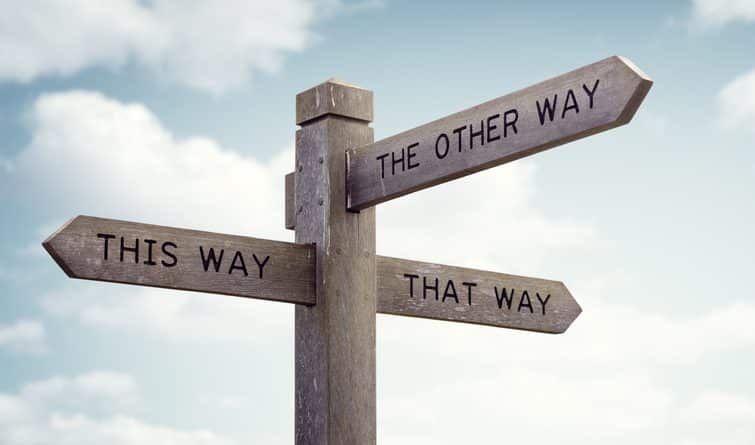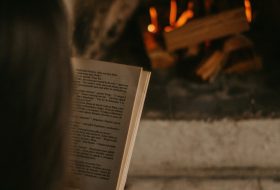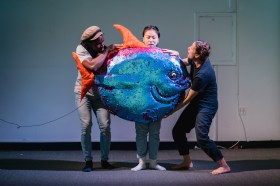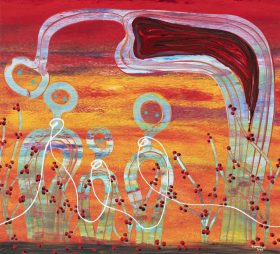I took up my position as Strategic Professor of Creative Arts at Flinders University in early 2013 (shortened on my door plate to a weird-but-interesting ‘Professor of Strategic Arts’). A few months later the Coalition was elected to power. My entire tenure as a professor has therefore been spent pressed to a glass darkly, watching three successive LNP governments each behave worse than the last, make less sense than the last, be more inclined to threaten and bully, less inclined to negotiate and persuade.
Over my nine years hard, I was as inside Federal cultural policy as it was possible for an outsider to be. I published four books and dozens of articles on Australian arts, and the problem of public provision with which they are entangled.
Leaving aside disagreement on political views, it was a coarsening experience. Listening to the over-matey language. Watching the strained projection of masculine ‘strength’ the media thought so compelling but voters finally did not. Bewildered by the absence of apology for wrongs for which the government was directly responsible. The grinding, unrelenting, undignified lack of compassion in all its actions, large and small. It was as if policymaking was being mocked, rather than served.
There is an important distinction to be made between Coalition government in general, and these Coalition governments. I was there when the Australia Council rolled out its first post-election Strategic Plan in 2014, with the cultural diplomacy dimension missing from Labor’s 2013 late-birthed, Creative Australia.
I followed the dreary saga of the National Program for Excellence in the Arts in 2015 as Federal cultural policy began to slip its groove, and witnessed the killing-off of its successor, the Catalyst fund in 2017. I made three submissions to the Inquiry into the Cultural and Creative Industries at the start of 2020, and gave verbal testimony to it at the end. Like Alice talking to the Red Queen, I tried to follow the logic of the illogic, the twists and turns of proclamations I felt sure had some underlying coherence. I spent months researching past Coalition arts programs to see if a bipartisan cultural policy was possible. It is.
In December 2019, I flew to Canberra to meet with two Coalition arts advisors and was given a tour around empty Parliamentary offices. I was told ‘nothing happens in this building without Scott Morrison knowing about it’. In February 2020 Brittany Higgins spoke her truth in public. The Prime Minister claimed to be hearing it for the first time.
Demanding from those who disagreed with them a balance they did not reciprocate and a respect they did not repay, for nine years the Coalition Government’s approach to the arts portfolio was devoid of consistency, understanding and genuine purpose. George Brandis was high-handed, Mitch Fifield invisible, Paul Fletcher weak and imperialising.
The neglect of so many artists in the roll-out of the JobKeeper scheme during the first year of COVID was a national disgrace. The endless cuts to an already spavined arts budget were pointless and cruel. Policy announcements were coats of varnish on in what in reality were Ministerial decrees.
What the Coalition withheld by way of concern and support, it made up for in self-promotion. It said it was generous to the arts sector, that it was not cutting the ABC. I couldn’t decide, listening to Ministers whining – as if they were the real victims – whether they were lying to us, lying to themselves, or genuinely deluded. Every interaction with the cultural policy process was exhausting because Ministers were never in good faith. The agenda was impenetrable yet oppressive, like coal smoke. Respect for cultural institutions was minimal, understanding of cultural practices non-existent. Even the forlorn hope of the sector – creative industry arguments for their economic impact – didn’t prompt a meaningful response. In the end, the Coalition gave the strong impression they just wanted the arts to go away.
Read: New Minister to end attacks on the arts
What art did – do – these politicians care about, I wonder? What books do they read, what films and plays do they see? Are they affected by their experiences like ordinary Australians? Or are they cut off from the artistic mode of life like no other elite in history?
In a country as educated, lively, imaginative and diverse as Australia, the cultural barrenness of our Federal parliamentary milieu is deeply shocking to me, a hole in our national heart. Federal politicians’ attitudes to the arts seem so lacking in common sense, connection and warmth, it is hard to know where to start in addressing a blind spot the size of Jupiter.
If I had my way – theatre director as I am – I would run mandatory creative workshops in Parliament House for all MPs. Over three days with groups of 16 or less. Using the untapped artistic skills I am sure they, like many other Australians, possess, they would produce paintings, dramas, videos and music about the suffering and hopes that lie in their souls but find no ready outlet in the carnage of political debate.
I’d be in charge, flitting from group to group, encouraging the artistic process to unfold. On the last evening, we’d have a showing for family and friends. There’d be laughter and tears. Wouldn’t everyone feel better? Wouldn’t the night reveal many things surprising and new? Andrew Bolt would be so moved he’d abjure vituperation and embrace charity work.
Because that’s culture, simultaneously an expression of the deepest part of our common humanity and of our individual imaginations. The binding magic of our collective life, stronger than Tarzan glue, and a lot less smelly.
Today we hear politicians more than ever before pay their respects to ‘the oldest continuing culture in the world’. The operative word is ‘culture’. Without proper understanding of its meaning, the great opportunity inherent in that acknowledgement will be missed – not just for Indigenous Australians, but for all Australians.





